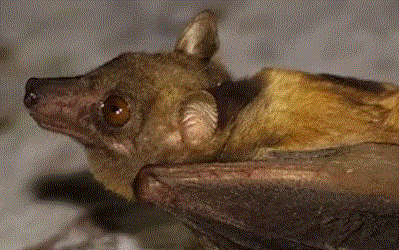Research | Infectious Disease | Global

Bat species use different strategies to dampen immune activation in response to viruses. Bats act as reservoirs for lots of viruses—including coronaviruses such as those that cause Middle East respiratory syndrome, severe acute respiratory syndrome, and possibly COVID-19—but they don’t often get sick themselves. How they avoid viral illness has been an open question. Researchers reported in PNAS yesterday (October 26) that various species of bats have slightly different ways of suppressing inflammation, all centered on changes in genes responsible for triggering innate immune responses.
The authors demonstrate a number of the mechanisms in bats that seem to support their capacity to tolerate viruses that make other mammals really sick, says Cara Brook, a postdoc at the University of California, Berkeley, who was not involved in the work. “This follows a series of other publications that really highlight a dampened inflammatory response in bats that suggests that they are uniquely resistant and resilient to the consequences of immunopathology . . . and don’t experience the kind of autoimmune disease that we often incur against ourselves.”
In a study published in 2013, Linfa Wang, an immunologist at Duke-NUS Medical School in Singapore, and colleagues compared the genomes of two bat species: the fruit bat (Pteropus alecto) and insectivorous bat (Myotis davidii). They found that both species had lost a gene called AIM2, which in other mammals encodes a protein that senses pathogenic DNA and triggers inflammasomes, protein complexes that activate proinflammatory signals that in turn promote the maturation of cytokines, small signaling proteins that can be released by immune cells and regulate inflammation and immunity.
More information can be found at : https://www.the-scientist.com/news-opinion/alterations-in-immune-genes-make-bats-great-viral-hosts-68091

